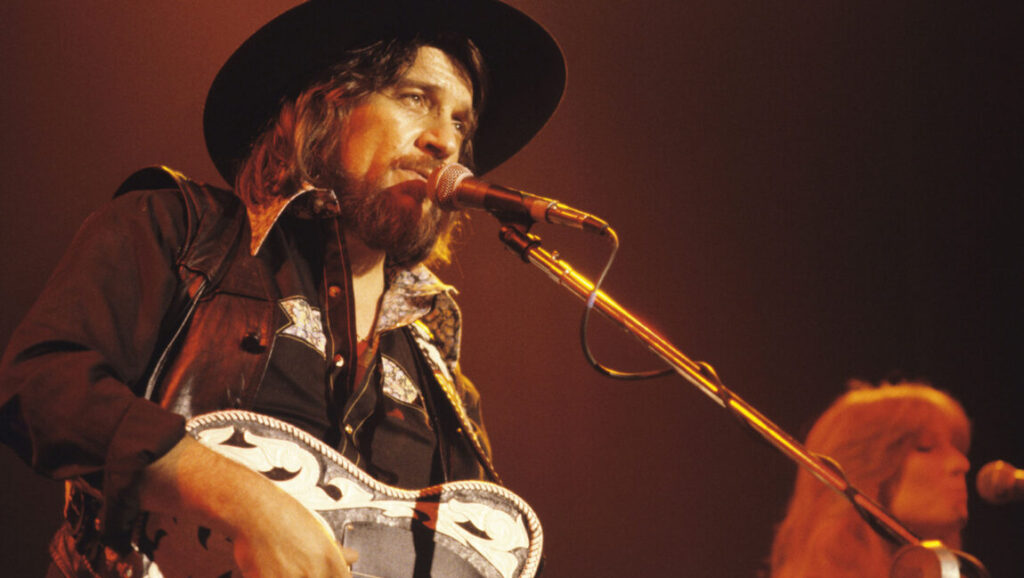Waylon Jennings may not have invented outlaw country, but with Honky Tonk Heroes he gave the movement its clearest distillation of purpose; its manifesto, its aesthetic framework, even its narrative vocabulary. Naturally, for a movement so rooted in myth-making, there’s an important backstory. Jennings, along with his pal Willie Nelson, was increasingly frustrated with the overly-conservative interventions of the Nashville overlords, inching toward a more rambunctious sound that wedded country storytelling with the defiant stance of rock and roll, the latter supplied by Jennings’s ruthless touring band. He had the attitude, but what he needed was songs. He found them via one Billie Joe Shaver, then an all-but-unknown songwriter-for-hire whose “Willy the Wandering Gypsy and Me” somehow made it into Jennings’s bandwidth. The singer was so impressed that he ultimately commissioned an entire album’s worth of material from Shaver, who rose to the occasion, with nine originals that immediately established the tenor and tone of outlaw country. (The tenth song on the album, “We Had it All,” was a ringer from Troy Seals and Donnie Fritts, and it fits in just fine with the Shaver material.) What astonishes about these songs is how they add up to such a robust, fully-embodied character; give credit to Jennings’s deep, sonorous twang for inhabiting the songs so fully, bringing them to life with a rough-edged masculinity, but also an innate tenderness.
It’s the album’s lone opulent gesture, and it’s well-earned; over 27 minutes, Honky Tonk Heroes creates an emotional reservoir so deep, and so complex, it’s still startling today.
Shaver’s songs document the outlaw lifestyle as a sequence of rabble-rousing adventures, a string of broken hearts, a bible of myths and legends that obscure the line between personal remembrance and tall tale. They are often deeply funny, but never at the expense of character-building; “The devil made me do it the first time / The second time I done it on my own,” Jennings boasts on “Black Rose,” a sharp one-liner that immediately positions his honky tonk hero as a bit of a sadsack, and a bit of an asshole. There’s similar depth to “Willy the Wandering Gypsy and Me,” a high-and-lonesome campfire song that both romanticizes the outlaw’s roaming, rambling ways, but also counts the cost. It’s no accident that the song is followed by “Low Down Freedom,” where our rugged narrator has the autonomy to do anything he wants, and that’s exactly the problem. The title song begins as a sepia-toned saloon song, but then the full band transforms it into a hellraiser’s anthem, an uproarious celebration of long nights spent drinking, dancing, and blowing through a week’s pay. On “Old Five and Dimers (Like Me),” Jennings examines those raucous nights in the cold grey light of morning, looking back on his life with wistfulness but taking his regrets in stride. Throughout, he plays on’ry, but pivots to large-hearted emotion pretty quickly, and the band is similarly nimble: “Black Rose” buzzes and crackles with rock ‘n’ roll energy, while “You Ask Me To” goes straight for emotive power balladry. The performances are almost uniformly sinewy and lean, only dipping into the lush countrypolitan sound on album-closing “We Had It All,” a broken-hearted reminiscence that’s ornamented with thick, glossy strings. It’s the album’s lone opulent gesture, and it’s well-earned; over 27 minutes, Honky Tonk Heroes creates an emotional reservoir so deep, and so complex, it’s still startling today. It’s the stuff of legend.
Part of Kicking the Canon – The Album Canon.


Comments are closed.